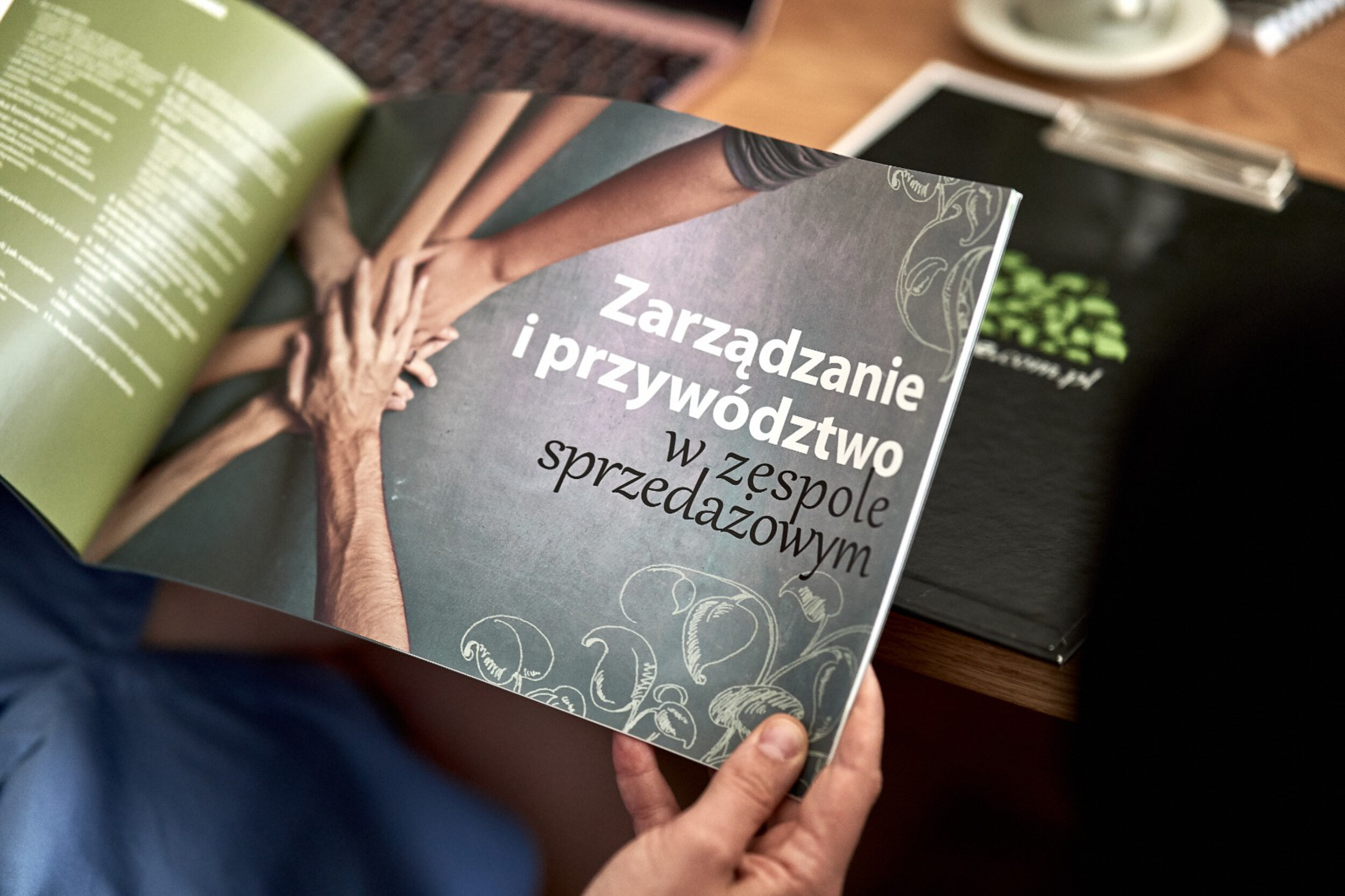

With effective development programmes created and continuously improved at Nesse, we help our Customers to acquire new managerial skills and develop their soft skills.
We have grouped our programmes into the following competence areas: comprehensive development programmes in the form of various Academies, Conscious Development Tools and Research. Customers benefit from the full course of the Academy or selected training modules – depending on their needs. We work in Polish and English. We work stationary and online.
We work in Polish and English
We work stationary and on-line
Training
programmes
Academy of Efficiency
Merchants' Academy
HR Academy
PM/Lean Academy
Academy of the Grandmaster of Development
Conscious
Development Tools
Coaching
Shadowing
Mentoring
Competence Help Centre
Tests
Career Capital Questionnaire (CCQ)
Extended DISC
Assessment and Development Centre (AC/DC)
180° and 360° survey
Nesse Interpersonal Training - what makes us stand out?
Project approach
For organisational and substantive security. In Nesse we work according to the rules of the Deming cycle: Plan - Act - Check - Adjust, which allows us to continuously improve, minimize errors and find new solutions.
High performance in research
In the research on the effectiveness of training we apply the Kirkpatrick Methodology. We are pleased to see excellent results, for example, at the satisfaction level we achieve an average of 98% satisfaction, and at the knowledge level we achieve more than 85% correct test results.
Customized training
The trainings project are preceded by an investigation of the Customer's needs and expectations, which are verified at each stage of the project. We are always close to the real situation from the Customer's experience, which we refer to during the training.
Coaches, Experts
Nesse's exclusive coaches. They stand out for their level of knowledge and experience in their area of competence. When we recommend trainers for projects, we take into account their knowledge, experience and organisational culture of the Customer.
Participants' opinions
"This really was the best school and the best people I've ever had to deal with in the training area! What's interesting, I've already met them in two organisations: as a young and inexperienced leader and then as a young manager in another. They create great learning environment! They go for quality, not quantity! I highly recommend it! (Participant, November 2019, opinion posted on LinkedIn.com)
"What did I like most? Interactive classes, using the examples during discussion, atmosphere, active participation of the whole group". (Participant, September 2019)
Customer support
Several years of cooperation with demanding automotive Customers have taught us flexibility and quick response to changing Customer needs. A team of dedicated professionals will be engaged in your project to ensure its safety. We offer our support at every stage of the project in terms of content, organisation and logistics.

Academy of Efficiency
Each employee has a specific development potential. According to individual skills, this potential may be in the stage of average use, pathology or maximum efficiency. The maximum efficiency, however, is not the result of a great effort, yet of a directing of potential in such a way to achieve excellent results with relatively simple tools. The training aims to show these tools.
The Manager
Exemplary topics:
Leadership and authority building
The leader in the world of VUCA
Team management
Distributed team management
Motivation
Mental toughness workshop
Presentations and public speeches
Negotiator's workshop
Having difficult conversations
Influencing
Training of assessment interviews
Project management
Decision making
Conducting meetings
Delegating tasks and developing autonomy of a team
The Team
Exemplary topics:
We are a team - teamwork
Trust building
Effective communication
Effective team - workshop according to Lencioni methodology
Performance orientation in teamwork
Team engagement development
Outdoor workshop "Jurassic Adventure"
Individual
Exemplary topics:
Interpersonal communication
Assertiveness training
Stress management
Presentations and public speeches
Negotiator's workshop
Having difficult conversations
Influencing
Emotional intelligence
Time Management
Project management

Merchants' Academy
The Sales Academy and Buyer Academy represent development projects that comprehensively improve the commercial skills of the participants. We select all training tools and the substantive scope of the modules on the basis of the real needs of our Customer, to ensure that participants achieve better results in their professional work and increase their sales and company profit.
Sales
Exemplary topics:
Sales skills training
Advanced sales workshop
Negotiator's workshop
Trade negotiations
Customer service
Sales team training
Audit of the sales team
Managing the sales team
Buyer
Exemplary topics:
Building a professional relationship with the supplier
Trade negotiations
Influencing techniques
Having difficult conversations

HR Academy
The activities in the area of human resources management should be long-term, consistent and integrated. The basis for effective performance is the knowledge and skills concerning the processes we encounter in our daily work, including the full life cycle of the employee in the organisation, from recruitment through work assessment and supporting development at the next career stages.
The HR Academy provides a series of training courses aimed at making the best use of a person's potential.
HR Specialist
Exemplary topics:
Prevention of professional burnout
Knowledge management in an organisation
Conducting employee assessments
Periodic employee evaluation system
Recruitment and selection
Non-wage motivation
Training management
Building career paths and talent management
Training for trainers
Business Partner's HR
Exemplary topics:
BPHR work in practice
Personal controlling
Having difficult conversations
Change management
Intergenerational management
Negotiations and conflict resolution
Leadership and team management

PM/Lean Academy
Successful Lean implementation does not begin or end with the implementation of tools. The foundation for change is the development of a Lean culture - a culture of continuous improvement of the organisation, employees and processes, the use of the potential of all employees, a far-reaching vision of the company and cooperation with suppliers and business partners. Sustainable development in all these areas is a guarantee of effective implementation of Lean within the organisation.
PM Academy is designed for persons who want to acquire the skills to manage targeted projects or programmes, with optimal management of the resources (human, material, time and equipment). The trainings are focused on the use and development of management skills by objectives, they emphasise the individual role of the manager as the implementer and guarantor of project execution, they teach the specificity of the project approach and design thinking.
Lean Managment
Examples of issues:
Basics of lean manufacturing
Lean leader academy
VSM value stream mapping
Planning of multi-assortment production in batches according to Lean
Kanban - a course on flow logic
5S System - Workplace organisation
5S Masters - how to effectively implement and maintain
Problem solving methodologies, A3 basics
Eliminating process variability - standard work, building and implementing best working methods
SMED - shortening changeover times
TPM Academy - total productive maintenance
Building the KAIZEN system - continuous improvement
PM
Examples of issues:
Project Life Cycle
Role and importance of the Project Manager
A project in response to the need of an organisation
Creating a project team
Communication in the project team
Delegation and enforcement of tasks within the project
Motivating in the project
Planning and building the project schedule, defining the critical path.
Project control - verification of effects
Importance of project conclusions. Knowledge management in organisations

Academy of the Grandmaster of Development
The Academy of the Grandmaster of Development is addressed to people responsible for the development of both hard and soft competences in the organization.
It applies to all those who conduct meetings, trainings, courses or briefings, the aim of which is not so much to convey knowledge but to train appropriate skills and behaviours, e.g. conducting sales talks, public speaking or time planning skills.
The Academy of the Grandmaster of Development puts emphasis on changing the attitudes of participants in the development process so that they are motivated to make changes. It focuses on developing an appropriate style of work with participants, creating a basket of training, coaching and assessor tools. We share our best practices with the academy participants. We focus on developing practical skills
We run the following academies:
Coach
Assessor
Trainer
Facilitator
Mentor
Przykładowe tematy:
Diagnosis of areas requiring development
Training tools
Coaching methods
Development of personal competences
Group process control and management
Methodology of preparing and conducting trainings
Troubleshooting. Working with resistance.
Workshop for the exchange of knowledge and experience in the organization
Preparation and implementation of a mentoring system
AC/DC assessor training
AC/DC design Behavioural interviews workshop

Conscious Development Tools
Conscious Development Tools are individual forms of support improving the quality of management in organizations and supporting the implementation of effective work tools. They focus on the development of the Customer's personal potential and the possibility to jointly develop effective solutions to specific challenges faced by the Manager. Depending on the needs, we select an appropriate mix of conscious development tools.
Coaching
Coaching is not counseling, it is not a package of ready-made solutions. It is a search for optimal development paths for yourself and your company. By deliberately asked questions, a coach creates a chance for a completely different view of the situation.
Coaching focuses on what is now and orients you on the future and results. In business, it is often the best chance for the entire team development. In turn, individual coaching supports the implementation of new thinking and actions strategies and strengthens the desired skills.
Mentoring
The role of the mentor is of great importance in knowledge management in the organization. Thanks to the knowledge of the organization and extensive experience, background in the field of human motivation, social and organizational behaviour, it supports employees in their development, helping to choose the best possible path.
By promoting the culture of knowledge sharing, development and attitudes of social behaviour, the introduction of mentoring programmes benefits all parties involved - for employees, organizations and people acting as mentors.
Shadowing
A trainer is a shadow coach, accompanying the manager in his daily work and meetings with the team. A shadow coach observes his actions and behaviour without interfering with their content. The aim of shadowing is to observe specific behaviours of a manager, his leadership and communication skills, taking into account their effectiveness and impact on the team. Shadowing significantly affects the participants' motivation to make the desired changes, increases self-esteem and self-awareness, increases the effectiveness of achieving goals and dealing with managerial challenges.
Competence Help Centre
In Nesse, we make sure that gaining competences is as practical as it can be. Developing skills requires participants to have time and motivation, both of which are becoming increasingly difficult to have in today's business circumstances.
The Competence Help Centre is a tool used to implement and test the methods and techniques learned and the skills being developed in the working environment. We implement and test them online or through one-on-one exercises with the Coach.
At the request of its Customers, Nesse performs several dozen types of tests, which primarily assess:
personal effectiveness
manager effectiveness
organisational effectiveness
personality type
emotional intelligence
involvement
incentive potential at work
occupational burnout
stress levels
values
Examples of tests:
Career Capital Questionnaire (CCQ)
The Career Capital Questionnaire (CCQ) is a perfect tool for evaluating strengths and weaknesses of human potential – their personality traits, temperament, and motivation. Unlike many other available questionnaires, this questionnaire is fully standardised in Polish conditions and has credible accuracy and reliability scales.
Questionnaire results ensure the adaptation of working conditions, professional duties, and development paths to the individual predisposition of the respondent.
Extended
DISC
For over 20 years, the Extended DISC behavioural assessment questionnaire has been successfully used in over 40 countries worldwide.
Each country performs detailed statistical tests to make sure that the results achieved are reliable. In Poland, this tool has been used since 2001 and by more than 1,200 organisations.
The Extended DISC model is based on theories by Carl Gustav Jung and William Moulton Marston. The basis for these theories is the division of people's behaviour into four main types known as D I S C. The Extended DISC model focuses on an accurate measurement of individual types of behaviour in the respondent's potential.
Assessment and Development Centre (AC/DC)
The Assessment Centre (AC) is a method of determining the current competencies of employees or candidates during both the internal and external recruitment process. The main result of the assessment is to identify competency gaps, i.e. areas that are worth training.
The Development Centre (DC) is a diagnostic tool for planning employee development. The objective assessment of an external assessor and individual approach to the employee favours the outcome of a DC session, in which the current employee strengths and his/her areas in need of development are identified.
180° and 360° degree survey
180° and 360° degree surveys allow you to evaluate employee competencies and to find out their opinions on selected areas of company activity.
Due to their nature, they are most often used to evaluate managerial staff. It is a tool that provides feedback concerning the respondent from many different perspectives, including in areas related to his/her duties and social relations. Colleagues, subordinates, and superiors participate in the survey. The respondent makes a self-assessment as well.




























